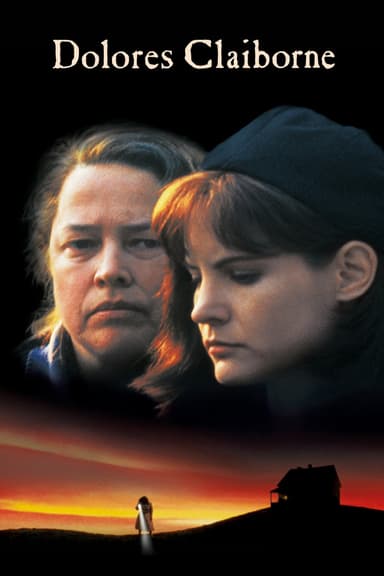
Needful Things
1993 • Drama, Horror • R
A mysterious new shop opens in a small town which always seems to stock the deepest desires of each shopper, with a price far heavier than expected.
Runtime: 2h
Why you should read the novel
Reading Stephen King's Needful Things offers a deeply immersive experience that goes far beyond what the film adaptation can provide. The novel allows readers to explore the intricate thoughts and motivations of the townspeople, gradually revealing the complex web of desires that drive them into making Faustian bargains with the enigmatic Leland Gaunt. King's signature prose and psychological insight create a rich tapestry of characters and relationships, making the gradual unraveling of Castle Rock all the more compelling and relatable.
The book delves into the darker corners of human nature, providing a slow build-up of tension and horror that is difficult to fully capture on screen. King's ability to spend time developing Castle Rock as a living, breathing community means that every conflict and tragedy packs a stronger emotional punch. Readers are given the chance to savor the mounting suspense and sense of impending doom, making the ultimate chaos even more powerful.
Choosing the novel over the film means embracing a more nuanced and unsettling journey into temptation, desperation, and evil. By inhabiting the minds of each character, readers can fully appreciate King's examination of morality, guilt, and human weakness, savoring details and subplots omitted from the movie. If you want a haunting, richly detailed story that lingers long after the last page, the book is the experience you deserve.
Adaptation differences
One major difference between the 1993 film adaptation and Stephen King's original book is the depth of character development. The novel meticulously introduces and explores the lives of dozens of Castle Rock residents, detailing the personal struggles and vulnerabilities that make them susceptible to Leland Gaunt's manipulation. The film, constrained by its running time, focuses mainly on a handful of characters, resulting in less nuanced portrayals and a loss of the community-wide scope that gives the novel its power.
Another significant divergence is the treatment of subplots and secondary characters. The book contains numerous intertwined storylines and personal histories that build gradually toward the town's unraveling, while the movie necessarily condenses or omits many of these elements. Notable side stories, such as the intense feud between Nettie Cobb and Wilma Jerzyck, are present in both but receive far more attention and complexity in the novel.
The tone and pacing of Needful Things also differ greatly between formats. King's narrative is a slow-burn horror, taking time to create an atmosphere of dread as each citizen succumbs to temptation. The film has a faster pace and simplifies some of the moral and psychological struggles in order to maintain momentum and fit within two hours, sacrificing some of the suspense and gradual escalation present in the book.
Finally, the resolution in the book and the film varies significantly. The novel ends on a more ambiguous and unsettling note, with Leland Gaunt escaping to begin his cycle anew elsewhere, and lasting scars in Castle Rock. The film opts for a more explosive and conclusive ending, wrapping up plotlines more neatly. As a result, some of the moral ambiguity and lingering unease that defines King's writing is lost in translation to the screen.
Needful Things inspired from
Needful Things
by Stephen King


















